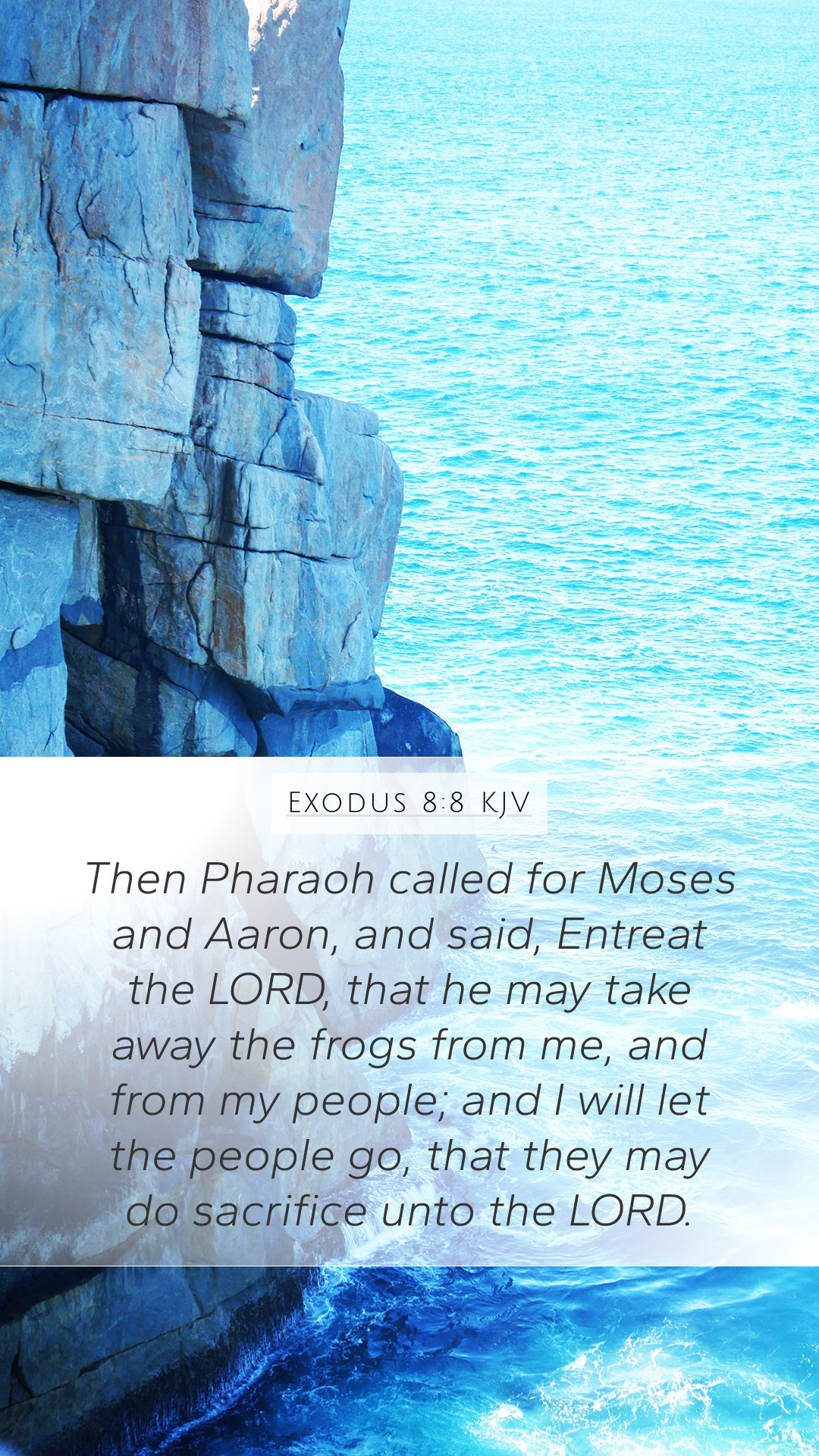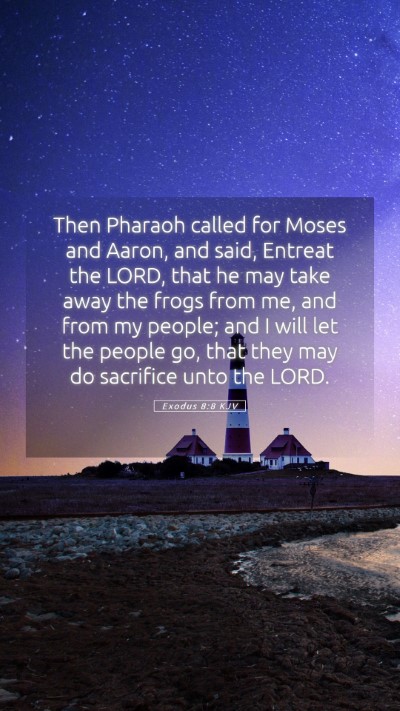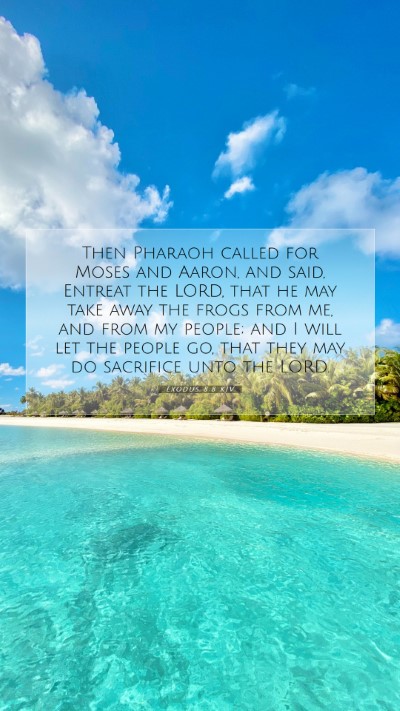Understanding Exodus 8:8
Verse: "Then Pharaoh called for Moses and Aaron, and said, 'Entreat the Lord that he may take away the frogs from me and from my people; and I will let the people go, that they may sacrifice to the Lord.'" (Exodus 8:8)
Bible Verse Meaning & Interpretations
Exodus 8:8 is a pivotal verse within the narrative of the plagues that God sent upon Egypt as a response to Pharaoh's refusal to free the Israelites from slavery. This verse highlights Pharaoh's acknowledgment of the power of God through the intervention of Moses and Aaron.
Contextual Analysis
This verse occurs after the second plague, which involved an overwhelming infestation of frogs throughout Egypt. The frogs symbolized not only a nuisance but also a divine judgement upon an idolatrous society that worshipped various deities, including those represented by frogs.
Moses and Aaron's Role
Pharaoh’s plea to Moses and Aaron indicates a temporary recognition of their prophetic authority. In this moment of crisis, he seeks their intercession, reflecting the desperation of his situation:
- Request for Deliverance: Pharaoh acknowledges his predicament and seeks relief from the frogs, showcasing his personal limitation and need for external help.
- Conditional Bargain: His promise to let the Israelites go in exchange for the removal of the frogs demonstrates his insincerity, as he has previously rejected God's command through Moses.
Theological Implications
The plea of Pharaoh raises significant theological themes such as:
- The Sovereignty of God: Even a powerful ruler like Pharaoh must bow to divine authority when faced with divine intervention.
- Human Weakness: It illustrates the temporary nature of human promise when confronted by the truth of God; Pharaoh’s character is further revealed as he makes promises he will not keep.
Commentary Insights
Matthew Henry: He emphasizes that Pharaoh’s request for prayer indicates a recognition of the Lord’s power and a crucial moment where he could turn from his stubbornness. However, he highlights Pharaoh’s shallow repentance, which is a common human pattern when confronted with hardship.
Albert Barnes: Barnes notes that this verse reveals the nature of false turning to God—Pharaoh desired a relief from suffering but was not genuinely seeking repentance or obedience to God’s command.
Adam Clarke: Clarke points out that God may sometimes allow extreme situations to escalate to bring a person to the point of recognizing their need for Him. He argues that Pharaoh's desperation illustrates human beings' tendency to seek God when in distress but neglect Him during times of prosperity.
Conclusion
Exodus 8:8 serves as a reminder of the tension between human authority and divine sovereignty. While Pharaoh attempts to negotiate with God through Moses, the story ultimately unfolds to showcase God’s unwavering will and the futility of man’s unfaithfulness.
Related Scripture Cross References
- Exodus 7:27-28 - Introduction of the plagues
- Exodus 8:1-2 - The call to let the people go
- Exodus 9:1 - The continued plea for freedom
Additional Study Resources
For those seeking to deepen their understanding of this verse and the surrounding narrative, consider engaging in:
- Bible study groups for collaborative learning.
- Online Bible study courses that focus on Old Testament events.
- Bible study materials that provide historical context and theological insights.
In-depth understanding of this verse can lead to meaningful discussions on the nature of faith, authority, and the human condition in relation to divine expectations.


